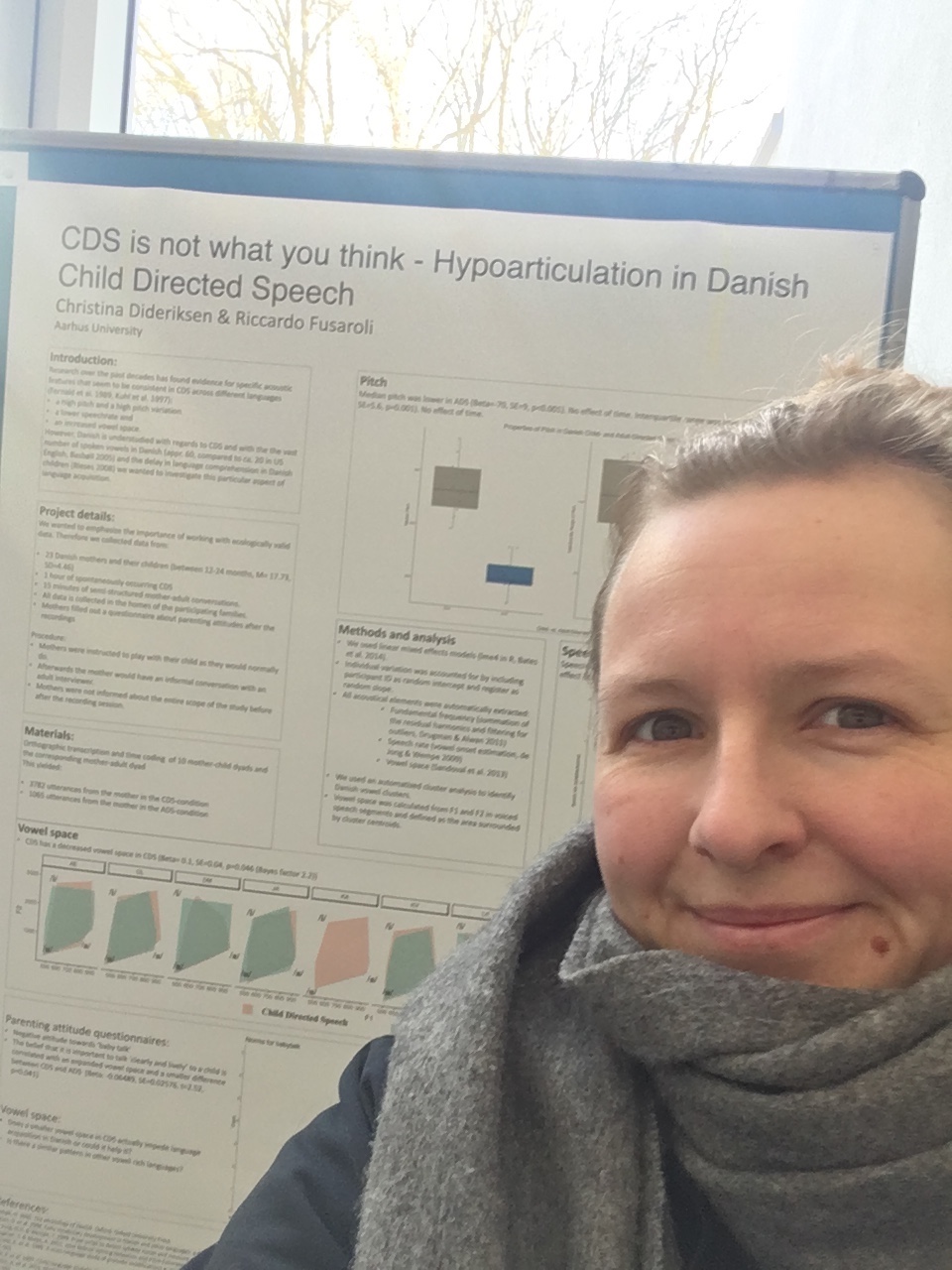Research spotlight #26: Christina Rejkjær Dideriksen
The spotlight is on Christina Rejkjær Dideriksen

Hi Christina, what is your background and job role at AU?
I haven't moved much since I was enrolled at Aarhus University in 2009 where I began studying anthropology. Later I started studying linguistics, also at AU, in which I have both a bachelors degree and a masters degree. Which I guess makes it my 10th year anniversary this year at AU! I am Danish, and I grew up in western Jutland.
I am a PhD student at the department of linguistics, cognitive science and semiotics where I work in the research group "the Puzzle of Danish".
What are your main areas of research?
My main research interest is interaction. My PhD project involves investigating interactions between healthy adults in different conditions, where one of the problems have been to find a way of making conversations between the participants as spontaneous as possible, even though we put our participants in quite an artificial situation. I am looking at conversational strategies that enable people to adapt their way of speaking to the particular setting that they are in, and which might (I don't know yet) also be different depending on the sound structure of their native language.
Are you involved with any teaching at the moment?
Currently I am not teaching any courses, but I have taught an introductory course in language, cognition and culture.
How did you hear about Cognition and Behavior Lab?
I was introduced to Cognition and Behavior lab on the day of the opening reception, actually. I was attending a summer school on experimental methods and we were invited to the opening reception for COBE Lab. Just two years later I would make use of the facilities in my own project.
Have you used the Lab? If so, what are the benefits for researchers?
I have used the lab to collect data for my PhD project. I have collected data from 80 participants who are having conversations in pairs. For a study like that, the main benefit of using the lab is definitely the possibility to use the Sona system. Recruiting participants was easy, and in this particular setup it was important that we had two participants in the lab at the same time, and luckily it was not a problem, the Sona system managed everything automatically.
Is there a particular recommendation you would like to pass on to other researchers? Something you wish you had known before you started, or just a useful trick.
Talk to other researchers about your (research related!) problems. A fresh pair of eyes is often all it takes to solve a problem.
Could you recommend one academic book to fellow colleagues that you think is of great interest?
I must admit that I mainly read articles and rarely find myself with an actual academic book...! I have spent a lot of time on online courses in statistics, though, where I can recommend both Coursera and Datacamp.
Away from your research, what do you enjoy doing?
Spending time in the company of close friends.
Finally, which Associated Researcher would you like to see under 'Spotlight' next time?
Kristian Tylén